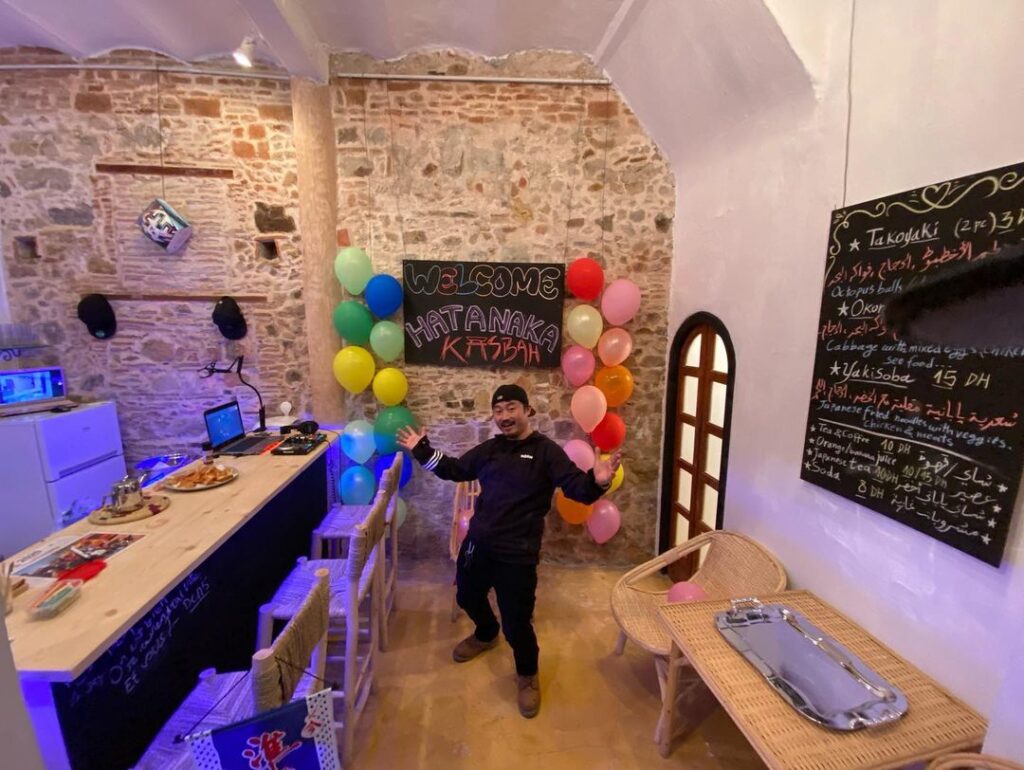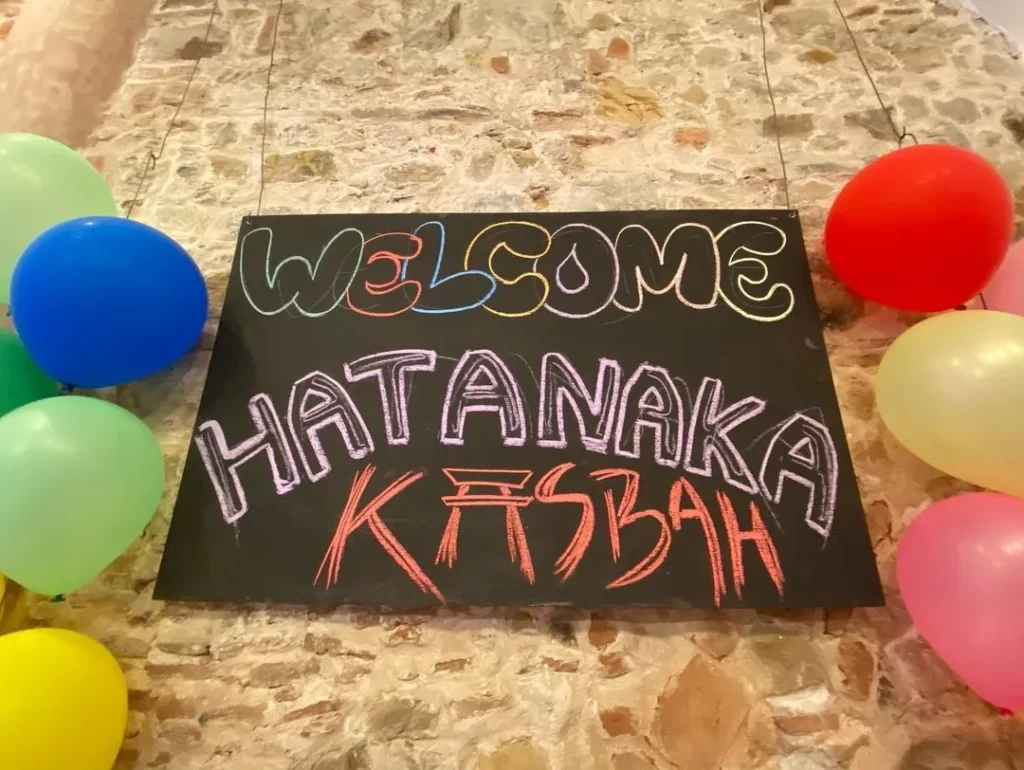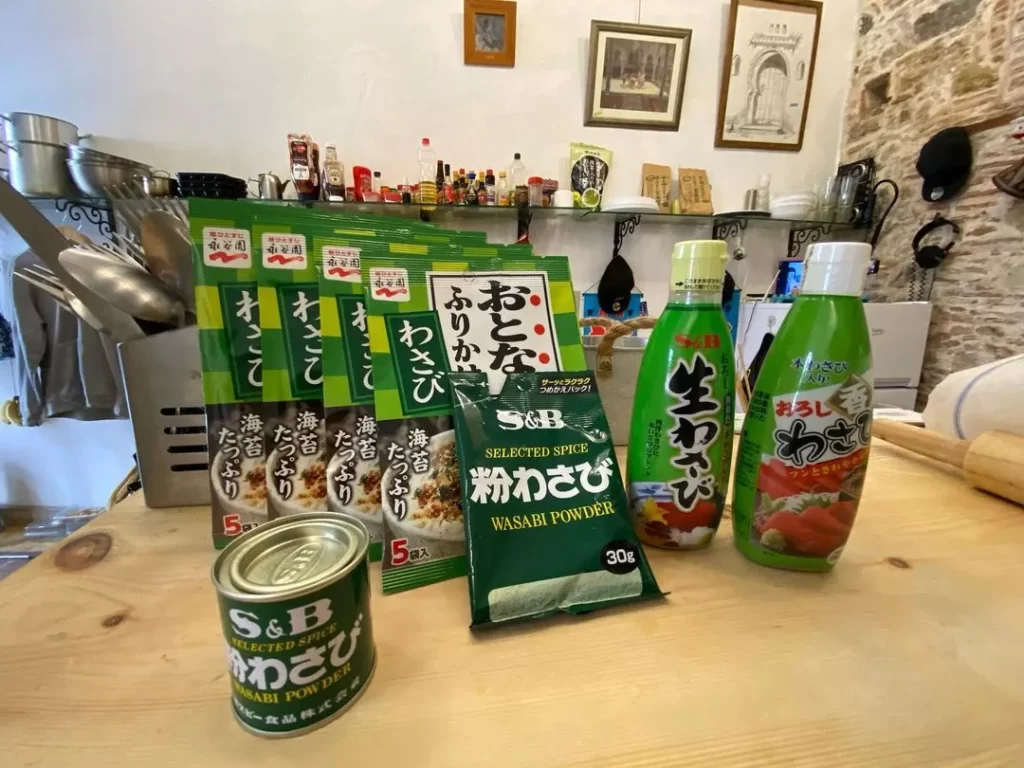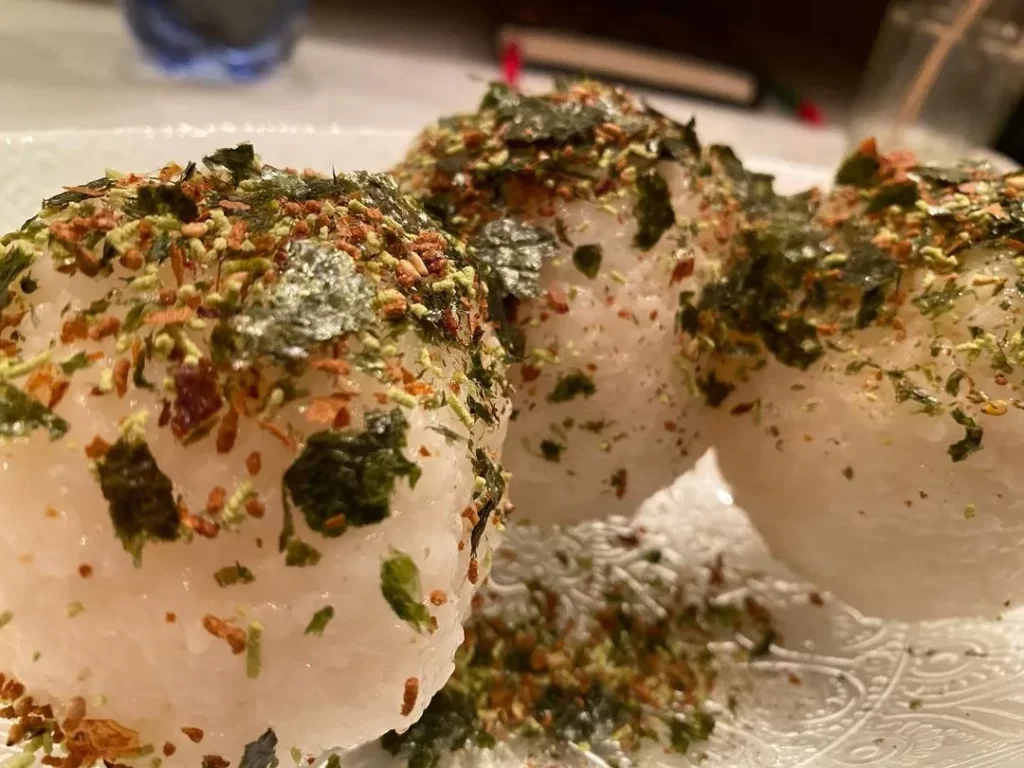A Lesson On How to Fulfill Client Expectations
Introduction
In Tangier lies a hidden Jade nestled in the depths of the Madina, where homemade native Japanese dishes are served to the public for them to appreciate and love the Nippon culture.
When you will first visit Hatanaka, your mind will immediately notice two things. First, the chalk blackboard menu with a drawing of Chef Sanji from one piece welcoming you. Secondly, the rich aroma of the Ramen broth prepared by the Japanese head chef, Hatanaka, and his expert partner Soulaiman.
Through a chance of fate or possible appreciation of the culture, I became acquainted with the two business partners. Recently, I had the opportunity to interview the team and learn how did it all start, and what can we learn from them.
Introduce Yourself and Hatanaka

This interview was done with Soulaiman, a 28 years old artist and jack of all trades. He is a language teacher (English, Arabic, Japanese, Darija, and Tamazight), portrait artist, calligrapher, graphic and concept designer, videographer, and voice actor.

As for Hatanaka the head chef, he wanted some details about him to remain anonymous. However, I was allowed to tell the story of how Hatanaka came to Morocco and why did he stay.
Hatanaka traveled the world after growing tired and stressed by Japanese society. Eventually, he visited Morocco and he fell in love with the culture and history, especially the suburban “shaabi” restaurants, and decided to settle here.
How Did Hatanaka Start?
The duo met at a Liveroom event where Soulaiman taught art. He noticed Hatanaka there and started a conversation with him since he knew the Japanese language. The two clicked and they became friends.
After exploring Morocco and its gastronomy, Hatanaka was inspired by the different restaurants and wanted to establish something similar. He contacted Soulaiman to help him start a business.
Originally, the restaurant would have been a sandwich shop (Snack). However, Soulaiman saw an opportunity and used his entrepreneurial skills to build something unique.
“I remember telling Hatanaka that His sandwich shop idea would have not worked especially since He is from a different country. I told him that we can attempt to serve Japanese food.”
Soulaiman suggested the idea of making a Japanese restaurant that sold iconic dishes like Ramen, Takoyaki, and Onigiri. Although he was confident in the idea, Hatanaka wasn’t. He was worried that the Moroccan audience would not enjoy homemade Japanese dishes.
“I (Soulaiman) was confident people would enjoy it. I could have told like 200 people and they would have visited. My experience with Dragon Tanger showed me that people were eager for stuff like this.”
How Did The First Day Go?

“The day after we installed our furniture and bought ingredients, we invited all of our friends over the weekend as a launch party. One day was for Hatanaka’s friends, and the other for mine. Right that after that weekend, we got to work, there were no break days.”
Following their soft opening, the restaurant was open to the public on a Monday which happened to be the first day of the Omnicron border restriction, so they only served 4 clients the entire day.
“It felt as if the world was against us. When we opened, Omnicron happened and it was constantly raining that Monday, so it was a miracle that clients came that day.”
What Were Some of The Obstacles You Faced When Starting Hatanaka?

“During our first months, Our menu was very cheap while our ingredient importation was expensive. We were selling food at a near loss and were working for free just to cover rent and serve clients.”
It was a large struggle for the first months of Hatanaka as no one was familiar with the shop. It needed time to grow and become a popular name across the city. Moreover, Hatanaka did not rely on marketing of any kind, and solely utilized word of mouth to grow.
“I guess that we do not have a big social media presence. Customers recommend our shop to friends and then they recommend it to other friends… and that’s how we grew.”
In my article on how to create a small business, I argued that most starters will not see overnight success and it will take a couple of months to build a stable income. Hatanaka was no different, they had to grind and sacrifice to establish a client base.
Additionally, Hatanaka also exerts deep knowledge about their customers, which explains why the initial launch prices were so low:
“We wanted to make our prices accessible for everyone, specifically students. We know our audience is fairly young without an income, so we tried to adapt.”
Although it is nice to be empathetic and relatable to an audience, a business needs money to survive, and the low prices were not enough. So, they were forced to raise the prices.
“When we decided to raise our prices, we were afraid that our customers will leave us. When we apologized for the increased prices, everyone encouraged us to raise the prices […] For now, we are comfortable with our pricing.
How Was The Reception From Morocco?
When two started the restaurant, Soulaiman predicted that the restaurant will see a respectable amount of success. But even he was shocked by how much the concept was well received in Morocco and across the world.
“Often, We would get clients from different cities and countries telling us that they heard about this place from a previous customer. It pleases us to know that people come to Tangier just to visit us.”
What Do You Think Makes You Different From Other Asian Restaurants?

“Our restaurant is inspired by local shaabi restaurants. We try to be the best and serve good, iconic, and comforting Japanese food at a good price. We want clients to feel relaxed and cozy and encourage them to socialize.”
Who is Your Main Audience?
Like other businesses featured on this blog, Hatanaka has a deep understanding of its client base. This allows them to think of who are they serving, what they like, and fulfill their desire.
“Our clients are mainly anime fans, tourists, and adventurous people. Additionally, we get more females than guys, which is weird but also understandable. Also, clients often come in groups of two or three. […] We know they like Manga and Anime so that plays a part too.”
Did Anime/Manga Play a Huge Role In Your Shop?
After identifying Hatanaka’s main client base, the two knew they had to incorporate manga and anime culture to appease them in the early days.
Soulaiman told me:
“One of the first things I thought of when creating the menu was: What is the most iconic food in Anime? Immediately, we knew what to add to our menu.”
Since their clients are anime fans, the concept of tasting food seen in anime would be enough to convince them to visit the shop and try it out. They recognize iconic food like Ramen, Takoyaki, Yakisoba, and Onigiri.
Similarly, the decoration in Hatanaka also reflects this experience including the large Sanji chalkboard for every passer-by to see.
“Oh, that Sanji piece was iconic. Everyone who passed by would recognize who he is and come visit us. I was going to draw some Japanese frogs like the ones in Naruto, but the idea of drawing Sanji struck me and I rolled with it.”
What Would You Like People To Know Before Coming To Hatanaka?
One important thing to discuss is racism and stereotyping in Morocco. Since Hatanaka is Japanese, it was unfortunately inevitable he would run into some issues, especially in what he is called.
If you would visit the restaurant, one notice says “Don’t call all Asians Chino.” This is because Hatanaka would often be called that and feel insulted about the name.
“We know that everyone who visits us is respectful and is decent enough to not call us those names. But unaware and uneducated individuals would walk by and call us by that word.”
Soulaiman reassured that it doesn’t happen often but once it does it is a negative experience for everyone.
“Apart from that, I want to tell everyone who visits to come chill, eat some good food, and start a conversation with us or the people around you. We all share a love for Japanese culture, so don’t be shy to talk!”
Moreover, they teach customers how to use chopsticks, explain the culture of the dishes, learn about the place and owner, and practice their Japanese.
“We love talking to customers and people, as long as we are not busy, feel free to share your story.”
Can You Explain The Process of Making A Dish?
As mentioned before, Hatanaka sells recognizable homemade Japanese dishes. They try to emulate the authentic taste inspired by Hatanaka’s culture and origins in a Moroccan experience.
“We learn and innovate in our dishes. We don’t serve Indomi and call it ramen. Instead, we make noodles from scratch daily, Use rice native to Japan, and imported spices. If that isn’t possible, we replace it with our version and tell the client of course.”
What Is Your Biggest Achievement With Hatanaka?
“Our biggest accomplishment was building a good reputation. We get to see people enjoy our food and hear them laugh with friends. We are proud of the community we made.
What Is Next For Hatanaka?
“We are not the type to plan the future, we like to go with the flow. If we ever had the resources, maybe open a new branch in another city like Chefchaouen? It’s all a pipe dream for now.”
What Is Your Latest Obsession?
“I have been obsessed with this handheld console called The Playdate. It is a console that receives a mystery game every week, and players can make any game on it.”
What Can We Learn?
In last week’s interview, we learned the importance of understanding your audience and their needs. Hatanaka continues on this idea by teaching us how to fulfill client expectations and needs.
When a client learns about your business, they immediately form expectations and conceptions about your brand. It is up to you, the creator, to manage these assumptions and fulfill them.
For Hatanaka, clients expect authentic delicious iconic Japanese dishes that are popular in anime and manga. If the food resembles that image, then they are satisfied despite the taste of the dish (It’s seriously good though, definitely recommend).
